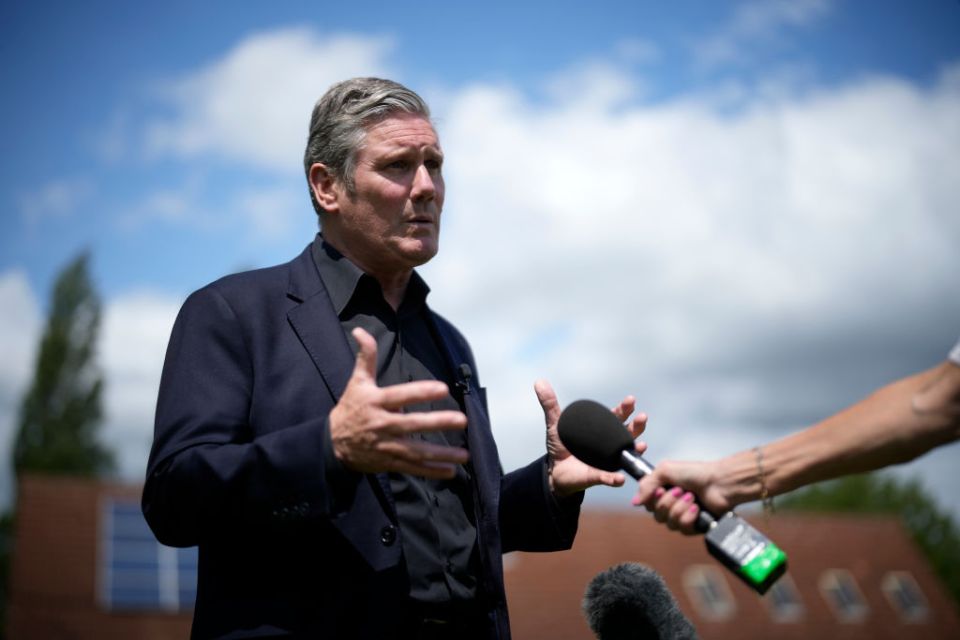Sizing up Whitehall: a Labour reshuffle must focus on potential ministers

In his next reshuffle, Keir Starmer must choose where to position his allies keeping in mind they might become his Cabinet if Labour wins at the next elections, writes Eliot Wilson
Being leader of the opposition can be frustrating. There is relatively little power in your hands: the government sets the parliamentary agenda and shapes the media’s priorities, you are unlikely to win votes in the House of Commons and you are usually reacting to events rather than creating a narrative. But you have a much freer hand over appointments to your top team, which is why opposition leaders are so fond of carrying out reshuffles.
The whisper currently on the hot, stale air of Westminster is that Sir Keir Starmer will soon reshuffle his shadow cabinet. It will probably take place after the trio of by-elections which will happen on 20 July, in which Labour are expected to do well, and the party’s National Policy Forum, its internal synod, which takes place that weekend. By then, the general election is likely to be not much more than a year away, so it is the last convenient opportunity for Starmer to put in place the line-up which, broadly, he wants to take into government.
The last major changes were made in November 2021, and Whitehall has been reshaped since then, which Starmer will want to reflect. There has also been a decent period of time to assess who is performing well and who is not: Yvette Cooper has been an effective and tough shadow home secretary, matching first Priti Patel and now Suella Braverman in grim-faced determination; Wes Streeting, the shadow health secretary, has shone brightly enough to be seen as a future leader; and Bridget Phillipson has sounded rational, humane and on top of her education brief.
Starmer has been dogged from the beginning by what to do with Angela Rayner. She was the party’s choice as deputy leader, not his, and she is a useful political brawler with an everywoman appeal and a licence to overstep boundaries once in a while. But her brief runs from the administrative grind of the Cabinet Office to the blue skies of “the future of work”, and even her most loyal supporters would not claim either of these play to her strengths.
Some shadow ministers may be looking at exciting opportunities on the back benches. David Lammy has made little impact in foreign affairs, especially noticeable when the foreign secretary, James Cleverly, has been cutting a statesman’s dash around the world, and there have been too many gaffes and mishaps. Lucy Powell, at culture, landed a few blows on the Johnson-loving piñata which was Nadine Dorries, but has lacked conviction in the ongoing Woke Wars. And there is a creeping sense that fondness for a former leader may have led to the overestimation of Ed Miliband in the vital energy brief.
Starmer needs a team which is ready for a gruelling general election campaign, because he knows that the government’s poll slump owes little to enthusiasm for Labour. But he will also be aware that he is now looking for future ministers rather than just cheerleaders, and most appointments ought to be framed in that context.
Rachel Reeves will stay as shadow chancellor. She may still be, in Ian Katz’s memorable description, “boring snoring”, but she knows her subject as a former Bank of England economist, and has the indispensable air of a grown-up. Likewise Yvette Cooper should keep her portfolio. Rayner needs a policy area which will benefit from her relatability and instinct for a knee to the groin: shadowing Michael Gove at levelling-up and housing would be one option for a brief with real-world effects. She could make an impact at health or education, but both are ably filled at the moment.
Who should move up? Shabana Mahmood has impressed as campaign coordinator, hard-working and a good fixer. Darren Jones, chair of the business and trade committee, has sharp political teeth and a firm grasp of commerce and technology; he could easily shadow his committee’s remit or take on the new science and innovation role. Stephen Kinnock and Liz Kendall are underused assets, while committee chairs Meg Hillier and Stephen Timms would add heft.
Starmer himself has never been a minister, yet needs a team which can prepare itself for moving into Whitehall. In fact, to identify his core colleagues and get a grip on the machine, he really needs the advice of Sue Gray—but she will not start as his chief of staff until September. Watch out for notes passed under the table.